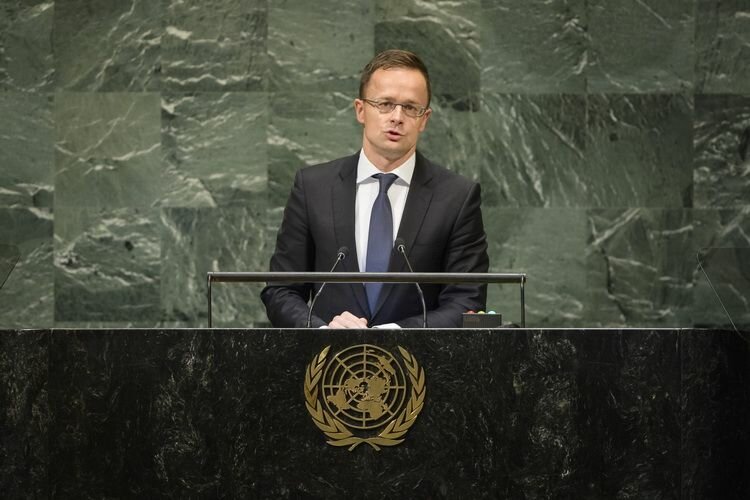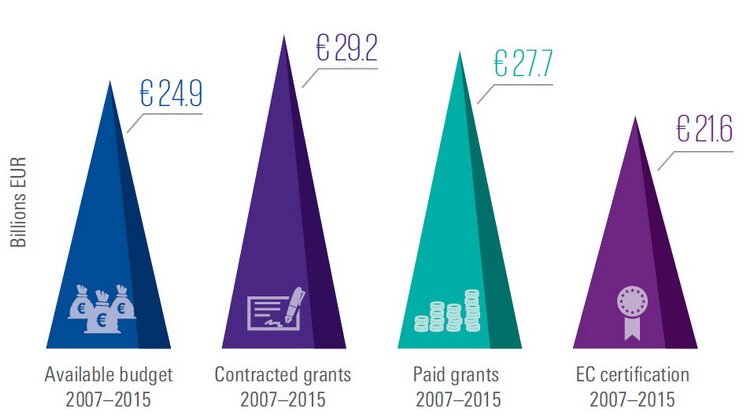
How Hungary in the EU Is Turning into a “Pariah”
Ivan Sichen
In our previous publications, we have already mentioned how Russia is trying to use Hungary to create obstacles in Ukraine's European and Euro-Atlantic integration and to provoke tension in the Ukrainian Trans-Carpathian region. At the same time, this is only part of the special tasks that Russia solves with the help of Hungary. Their spectrum is broader. There are also strategic issues such as weakening the EU and NATO, strengthening Russia's positions in Europe.
In particular, with its growing confrontation with the West, Russia seeks to undermine the unity of European countries within the framework of the EU and NATO in the most sensitive issues concerning their interests. For example, Moscow actively supports Budapest's selfish position when it opposes the migration policy of the European Union, explaining it by its negative consequences for Hungary.
Let's recall how, back in 2015, Budapest with Moscow's moral (and, possibly, financial) support refused to comply with the European regulation on the protection of human rights of refugees and the European Commission's decision on the distribution of migrants between the EU countries in accordance with the established quotas. Despite all the attempts of Brussels to persuade Hungary that this would have negative consequences for the whole of the European Union, Budapest remained in its position. In 2017, Hungary did not comply with the requirements of the Court of Justice of the European Union regarding the need to accept refugees in the number established by the EU.

|
| Minister of Foreign Affairs and Trade of Hungary P. Szijjarto at the Session of the UN General Assembly, September 28, 2018 |
And in July 2018, Hungary formally withdrew from the negotiation process on the implementation of the UN Migration Compact (Global Compact for Safe, Orderly and Regular Migration). The rejection of such a decision was confirmed by the Minister of Foreign Affairs of the country P. Szijjarto in September 2018 in his speech at the 73rd Session of the General Assembly of the United Nations. According to him, the UN Migration Compact is unacceptable for Hungary, since it actually encourages international migration, which is fundamentally not in line with Hungarian interests. At this, P. Szijjarto promised that Hungary would continue to adhere to a firm migration policy.
Budapest has backed its promise with practical countermeasures against the EU's migration policy. As you know, in summer 2018, on the initiative of the Hungarian government, into the Hungarian Constitution was introduced a provision prohibiting “the settlement of alien populations” in the territory of the country. And the Hungarian Parliament passed the Law on Education, which provides for the imposition of sanctions against non-governmental organizations that support migration. This applies to the media included.
Such Hungary's approaches are not in line with the principles of the European Union, which are enshrined in the EU Treaty and provide for joint resolution of existing problems. And even more so, Budapest makes a split between EU countries that adhere to the European migration policy and those who do not agree with it. Let's not forget, today Hungary's position on migration issues is one way or another supported by a number of EU member countries, including Italy, Austria, Poland, Czech Republic and Slovakia. This cannot but exacerbate the migration issue in Europe and creates an additional burden for other EU countries, including Greece, France, Germany, the Netherlands, Romania and Bulgaria.
Thus, Budapest directly opposes its interests to those of the European Union. But… does not refuse from its financial support! What is this, if not a double, ambidexter nature of the Hungarian politics?

|
| EU funds implementation in Hungary as at December 2015 |
For example, according to the document of the international audit company KPMG “EU Funds in Central and Eastern Europe. Progress Report 2007–2015”, within the mentioned period Hungary received 27.7 billion Euro from European funds. This makes 3 thousand Euro per capita, which is the highest figure among EU members.
It is this financial assistance from the EU and not “effective actions of the Hungarian government” (as claimed by Prime Minister V. Orban) that helped Hungary to overcome the economic crisis and achieve high growth rates. At the same time, according to his words, which he tirelessly repeats on every occasion, “European funds play an important, but not a key role in the work of the Hungarian economy. If it does not receive European investments, it will easily be able to compensate for their lack with money from China and Russia”. As some media rightly state, the Prime Minister will soon be able to test this in practice.
Thus, September 12, 2018, the European Parliament decided to impose sanctions on Hungary over breaching the core values of the EU. European parliamentarians accused the Hungarian government of its pressure on the civil society and press, of oppression of the judiciary system, refugees, migrants, minorities, and of untargeted spending of EU funds (“on himself, his family and friends”). At the first stage, Hungary's right to vote in the EU Council is suspended. And then, perhaps, the European financial assistance will be reduced.
According to European legislation, such a decision requires unanimous approval by the Council of the European Union. Of course, it can be rejected by Italy, Austria or Poland. At the same time, even in this case Hungary will turn into a European “pariah” in one way or another. And will it have the moral right to accuse other countries, including Ukraine and Romania, of what it is accused by the EU?..
In this regard, I would like to ask: In what way is Hungary's Law on Education better than Ukraine's one? As the saying goes: “Do not sweep someone else's house — see if yours is swept”.

